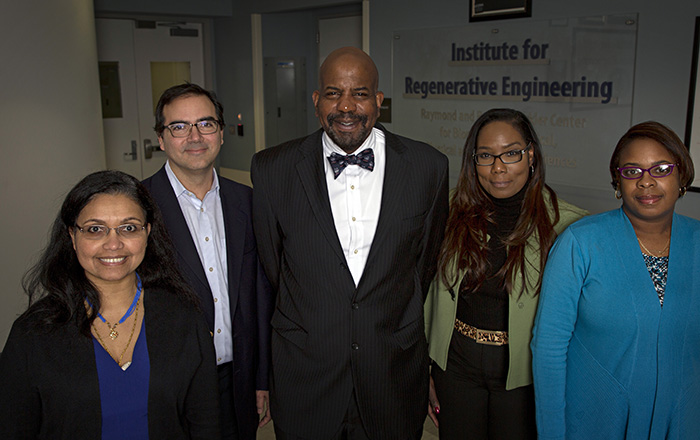This story originally appeared in UConn Today
The University of Connecticut has joined the Advanced Regenerative Manufacturing Institute as a partner for the purpose of sharing its revolutionary human tissue and limb regeneration technologies.
The institute, which is headquartered in New Hampshire, aims to speed the growth and use of engineered human tissues and organs to meet the increasing health needs of the nation and its citizens, especially soldiers.
“We need to develop 21st-century tools for engineered tissue manufacturing that will allow these innovations to be widely available, similar to how a 15th-century tool – the printing press – allowed knowledge to spread widely during the Renaissance,” said the chairman of ARMI, inventor Dean Kamen.
ARMI is the 12th Manufacturing USA Institute, a national network of public-private partnerships intended to nurture manufacturing innovation and accelerate commercialization.
With public-private investment funding approaching nearly $300 million, ARMI brings together a consortium of nearly 100 partner organizations from across industry, government, academia, and the non-profit sector to develop next-generation manufacturing processes and technologies for cells, tissues, and organs.

“We are excited to collaborate with ARMI to lend our expertise to our country and push our regenerative engineering discoveries and breakthroughs closer to the bedsides of soldiers and Americans in need of vital medical care,” said Dr. Cato T. Laurencin, an internationally acclaimed surgeon-scientist who is chief executive officer of the Connecticut Institute for Clinical and Translational Science (CICATS) at UConn, and director of the Institute for Regenerative Engineering and The Raymond and Beverly Sackler Center for Biomedical, Biological, Physical, and Engineering Sciences at UConn Health.
UConn is currently working toward regenerating a human knee within six years and an entire limb by 2030. Laurencin’s brainchild is the HEAL Project – Hartford Engineering A Limb – which was launched in November 2015 and is the first international effort for knee and limb engineering. Laurencin, whose laboratory research successes include the growth of bone and knee ligaments, is known as a pioneer in the field of regenerative engineering and material sciences.
At UConn, collaborators making the partnership with ARMI possible include innovative regenerative engineering scientist Lakshmi S. Nair, known for her research advances in growing musculoskeletal tissue at the Institute for Regenerative Engineering at UConn Health. The new ARMI initiative at UConn benefits from strong support by Dr. Bruce T. Liang, dean of the UConn School of Medicine, Kazem Kazerounian, dean of the UConn School of Engineering, and Jeff Seemann, UConn’s vice president for research.
“In joining ARMI, UConn will contribute to the program’s mission to bring together the country’s most talented researchers to accelerate the advancement of tissue bioengineering and regeneration discoveries, while helping bring these promising, much needed breakthroughs to patients in their clinical care,” said Seemann.



